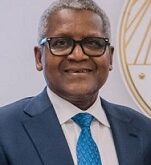FCT, ABUJA, NIGERIA – Ola Olukoyede, Executive Chairman of the Economic and Financial Crimes Commission (EFCC), revealed disturbing levels of corruption in Nigeria’s power sector, which he claims would evoke public outrage.
Olukoyede said, “As we speak, we are grappling with electricity. If you see some of the investigations we are carrying out within the power sector, you will shed tears.”
He detailed how contractors were awarded deals to supply critical electricity equipment but instead opted for substandard materials, a major factor in frequent power outages and system failures.
Highlighting the gravity of the issue, Olukoyede explained that some contractors had chosen inferior materials, using a 5.0 gauge instead of the recommended 9.0 gauge for electricity installations.
“Every time you see the thing tripping off, it gets burnt, falters, and collapses. It’s part of our problems,” he stated, emphasizing the urgent need for accountability and quality standards in infrastructure projects.
During an oversight visit by the House of Representatives Committee on Financial Crimes, Olukoyede stressed the need for a partnership between the EFCC and lawmakers to tackle corruption head-on.
“We must work together to fight financial crimes effectively,” he urged. The EFCC Chair highlighted the power sector as a primary focus, where corrupt practices have consistently hampered Nigeria’s infrastructure development.
Olukoyede outlined the EFCC’s new strategic emphasis on asset tracing and recovery, a crucial step in recouping funds lost to corruption.
He painted a stark picture: “For every 10 Naira recovered, perhaps 30 or 40 Naira may have been stolen. If we recover about 440 billion Naira and several billions of dollars in a year, imagine the total amount siphoned from our system. That’s the unfortunate reality.”
Emphasizing the importance of prevention, Olukoyede noted that recovering stolen funds is costly. “To recover 10 Naira, you may spend between 4 and 5 Naira. But to prevent 10 Naira from being stolen, you spend less than 1 Naira,” he explained, citing the EFCC’s research.
As a result, the Commission has established a new directorate for risk assessment and control to bolster preventative measures against corruption.
Olukoyede appealed for more resources to effectively fulfill the EFCC’s mandate, pointing out that the Commission’s staffs are underpaid. Improving welfare, he argued, would enhance staff morale and operational efficiency in tackling financial crimes.
Ginger Onwusibe, Chairman of the House Committee on Financial Crimes, expressed the committee’s commitment to supporting the EFCC through legislative reforms and increased budget allocations.
He urged the Commission to build stronger partnerships with other agencies and international partners to improve accountability and efficiency in the anti-corruption fight.
 Startrend International Magazine For Your Latest News And Entertainment Gists
Startrend International Magazine For Your Latest News And Entertainment Gists





